Almost There: Oskar Werner in "The Spy Who Came In from the Cold"
 Monday, October 5, 2020 at 3:19PM
Monday, October 5, 2020 at 3:19PM 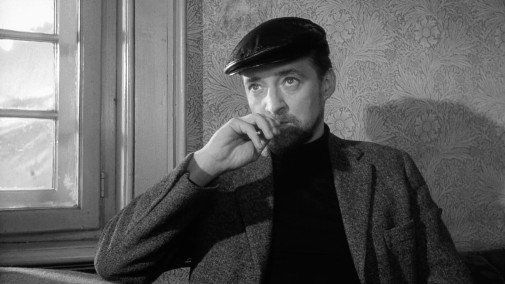
To be nominated in both Leading and Supporting categories at the same Oscar ceremony is a rare feat some actors have been lucky enough to achieve. Most often, though, AMPAS will pick a role to celebrate and only bless the performer with one nomination. Actors that came close to the elusive double nomination include people like Meryl Streep in 2002, Al Pacino in 1990, Jane Fonda in 1978, and today's Almost There case study, Oskar Werner in 1965.
This Austrian performer, famous for films like Truffaut's Jules and Jim, was nominated in the Best Actor category for his work in Ship of Fools. That same year, he was probably close to a Supporting Actor nod for The Spy Who Came in from the Cold…
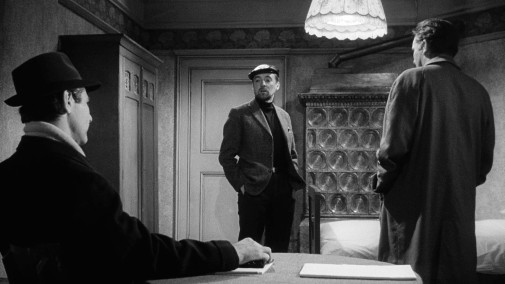
Adapted from John le Carré's homonymous novel, The Spy Who Came in from the Cold is a magisterial portrait of espionage in the age of the Cold War. The narrative focuses on a risky plot by which an MI6 officer, Alec Leamas, pretends to fall into a spiral of alcoholism and depression to catch the attention of the East German Intelligence Service. The plan is for him to be contacted as a potential source of confidential information, to act as a traitor in order to sow discord in the ranks of the enemy.
In bleak black-and-white imagery and a sense of overwhelming moral rot, director Martin Ritt conjures a universe where sincerity has long died and duplicity lives in its stead. Hopelessness covers every surface, like a sticky patina of spiritual pollution, and any hint of joy is cause for suspicion. Amid such dejection, Richard Burton plays Leamas as a man full of fire and fury, a blazing volcano of performative misery. His acting is purposefully showy, the sort of work that consumes the frame and is always on the precipice of absurd woe.
Burton's great in the role, but his approach can be perilous if it's not properly balanced by the other actors. Entering the narrative after its halfway point, Oskar Werner brings that needed balance to The Spy Who Came in from the Cold.
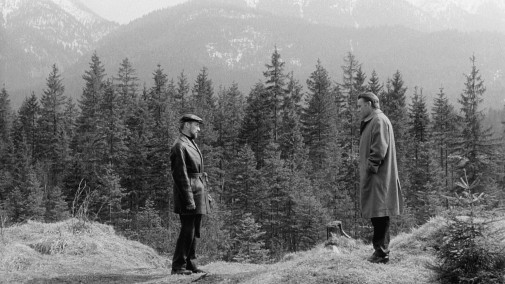
Werner plays Fiedler, Leamas' main interrogator once he arrives in East Germany. He spends much of his screentime in dialogue with the British man, trying to ascertain the truth of his intentions and the veracity of the information he brings. Memorably costumed in leather and a jaunty hat, Fiedler is a disconcerting presence, affable and casual when one would expect him to be like a predator sniffing for blood. There's a genial quality to the way he holds his body, occupies the space, and gives plenty of chance for his prisoner to incriminate himself.
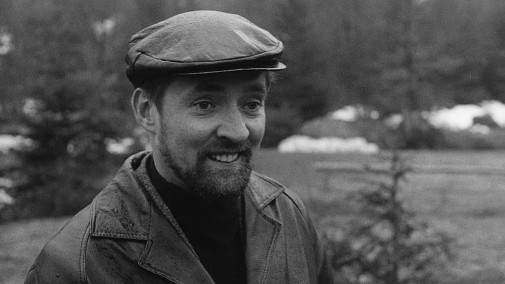
Throughout all this, Werner's looser than anyone else on the cast, even providing this gloomy drama with its only bright smiles and flashes of movie star charm. However, there's always a persistent hint that Fiedler's attitude is a studied affair, a tool of the smart interrogator rather than a reflection of the man's character. His warmth is carefully weaponized and whether it's real or not is beside the point. What matters is how he mulls over Leamas' words, how he comes to his conclusions, and acts on them.
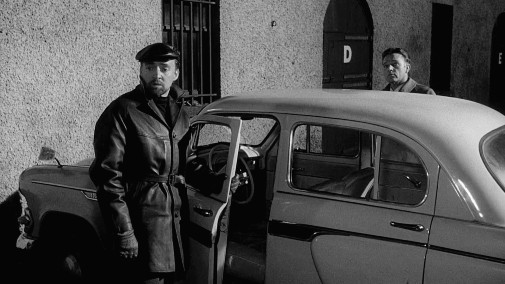
Especially when sharing scenes alone with Burton, Werner exudes the authority of a man who doesn't see the purpose of overplaying his hand or performing his power to others. He's a believer in his righteousness, a patriot, and perhaps too intelligent for his own good. Once the film twists itself into a trial and Fiedler's life is on the line, Oskar Werner allows some variation to enter his acting.

His only big flourish comes in representing Fiedler's overconfidence in his judgment. Then, only then, we can see a hint of the ham, of the manic intensity of a public speaker trying to get a rise out of his audience. It's fitting and it lays the groundwork for the trial's conclusion when Fiedler's triumph becomes his failure, his end. Anger and panic suddenly burst through the man's confident placidity like water bursting through a collapsing dam. He knows it's over for him.
While we're rooting for Leamas in as much as we're ever rooting for a Le Carré protagonist (his is a cynical literary canon), we don't feel any joy at Fiedler's fate. I find no problem imagining other actors savoring each line of the character, twirling their invisible mustaches while playing Fiedler as the master manipulator that he's not. The world of this film has no place for such outward malevolence or the schadenfreude a villain's failure might imply. Werner's deeply humane and pointedly underplayed take on the character a necessity for the picture's success.
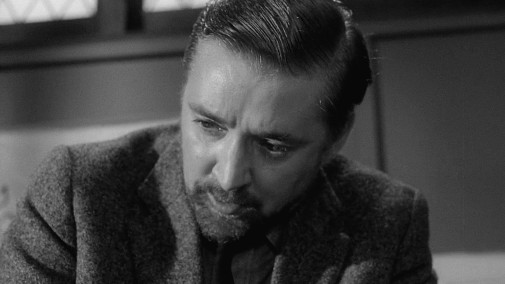
It's easy to overpraise an actor who surprises the viewer, someone who contradicts the expectation and challenges the audience with their choices. However, in Werner's case, this odd reluctance to give in to the role's performative villainy is in perfect synchronicity with the text he's working from. John Le Carré wrote about systems of governance and power dynamics, letting his character's interior lives percolate at the margins of the plot, almost out of sight though still visible to the attentive eye.
Following his example, Martin Ritt trusts his actors to perform in such a way that the mechanisms of their role in the spy game are always forefront, while their humanity is relegated to the background. They must not overplay their interiority or else it would be a betrayal of the text. It's a difficult challenge, being opaque and approaching characterization as a complement to the performance rather than its centerpiece. Oskar Werner's Fiedler is a masterclass on this type of acting.
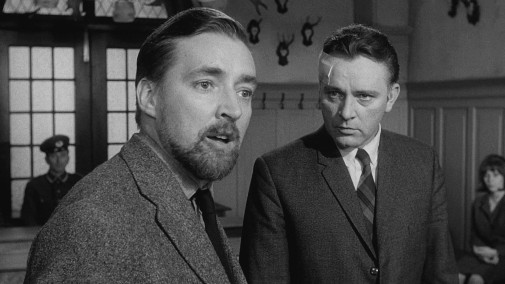
Werner's work would earn him a Golden Globe win as well as a BAFTA nomination, but AMPAS chose five other men over him. They were Martin Balsam in A Thousand Clowns, Ian Bannen in The Flight of the Phoenix, Tom Courtenay in Doctor Zhivago, Michael Dunn in Ship of Fools, and Frank Finlay in Othello. Balsam would end up winning the prize for his solid work in the adaptation of Herb Gardner's play, his first and only appearance in the annals of Oscar history.
As mentioned before, Oskar Werner didn't have too much to cry about despite his snub. After all, he was recognized with a Best Actor citation for Ship of Fools. In that category, he competed alongside his The Spy Who Came in From the Cold's costar, Richard Burton. As luck would have it, both men perplexingly lost to Lee Marvin Cat Ballou. Neither Burton nor Werner would ever win an Oscar, though the British thespian came close numerous times.
As for the Austrian actor, he would only be in four more films after 1965. This was partly due to his work as a stage performer, partly due to his alcoholism. His last picture, 1976's Voyage of the Damned, got him another Golden Globe nomination but AMPAS ignored him once more. He died in 1984, at the age of 61, less than two days after the demise of his Jules et Jim director François Truffaut. Thanks to his brilliant performances and place in Academy Awards history, Oskar Werner's legacy lives on.
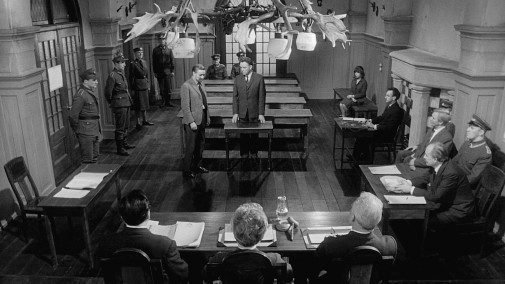
The Spy Who Came in from the Cold is available to stream on Amazon Prime. You can also rent it from several services.



Reader Comments (12)
1965 was kind of weird. Not only Werner, But Rod Steiger (The Pawnbroker/Doctor Zhivago) and Lee Marvin (Cat Ballou/Ship of Fools) probably came close to getting both Leading and Supporting Oscars. and who knows, these days would Julie Christie being pushed for a Supporting Actress Oscar for Doctor Zhivago to go along with her Leading Actress nom for Darling be any weirder than Rooney Mara in Carol or Alicia Vikander in Danish Girl?
I started Ship Of Fools just last night! I'll finish it this week, but so far I haven't seen much to justify Werner's nomination. Hopefully the performance is upcoming in the second half, and I don't have to begrudge him taking Omar Sharif's spot. Come to think of it, I haven't seen much from Simone Signoret or Michael Dunn either to justify their nominations. (So far it's just a lot of "drama" from George Segal and Elizabeth Ashley).
I know I have tried to watch Spy Who Came In...in the past but was hampered by a terrible print on TV. I'll put it on the list of movies to watch.
ken s -- It was indeed a weird year. I also thought about doing a piece on Steiger instead of Werner, but we already have other ZHIVAGO write-ups and this was a great way to force myself to watch this classic which I'd never seen before.
Regarding Christie, I think she'd have been campaigned in Supporting today. I wonder how things would have turned out if she'd been considered Supporting way back in '65 and got nominated. Would she have still won Best Actress? Would she have won both?!?!
Dave in Hollywood -- I'm no fan of that film, but Werner's my favorite part of it. His later scenes with Signoret, the strange romantic ardor they bring to them almost make up for the rest of the picture. Almost.
Meryl was never double Nominated for an Oscar, only for the Golden Globe for The Hours (Lead) and for Adaption (in supporting, which she was nominated at the Oscars). Al Pacino was double Nominated in 1992 for Scent of a Women and Glengarry Glen Ross. And Fonda was only nomated 1 time in supporting for a Golden Pond in 1981.
Patrick -- I hope that what I wrote didn't come off as me saying all those actors got doubly nominated in the years I mentioned. Those were cases of "almost there" double nominations, not actual ones.
Streep could have gotten in lead in 2002 for THE HOURS alongside her supporting nod for ADAPTATION. Considering all the unexplainable love that THE GODFATHER PART III got from AMPAS, it's strange that Pacino wasn't nominated in Lead as he was in Supporting for DICK TRACY. As for Fonda, 1978 represented a huge highpoint in her career, a resurgence after much controversy. Again, it would have been conceivable for her to get a nomination for CALIFORNIA SUITE, making her a double nominee.
Really like A Thousand Clowns, but mainly for Robards great performance, Balsa!m kinda forgetable to me.
The prediction pieces are so boring this year so an old faithful like Almost There really hits the spot and gets me giddy. Brilliant work, he should have been nominated and won! Just like the baroness, the slam dunks were ignored in 65.
PS Claudio, I finished Ship Of Fools and I'm baffled over the nominations really. I don't mind an upgrade from supporting to lead, so I guess that's what they did with Simone Signoret who had vey few scenes and even dialogue. I guess Oskar Werner had the largest role in the movie and Best Actor is appropriate, but there's really not much there. But honestly, it's the direction of the movie that's a mess really. Such great actors all kind of wasted. It felt like a disaster movie without any of the fun trashy payoff. And all the shouting by Jose Ferrer and George Segal was just too much. Stanley Kramer isn't usually this bad, is he?
Dave in Hollywood -- Stanley Kramer is one of least favorite filmmakers, so I do think he's usually this bad, if not worse.
Haha, Claudio, well then you would be an excellent choice for a Stanley Kramer retrospective!
Dave in Hollywood -- Why do you wish such horror upon me?!?
Horror for you, but enlightening prose/comedy for us!